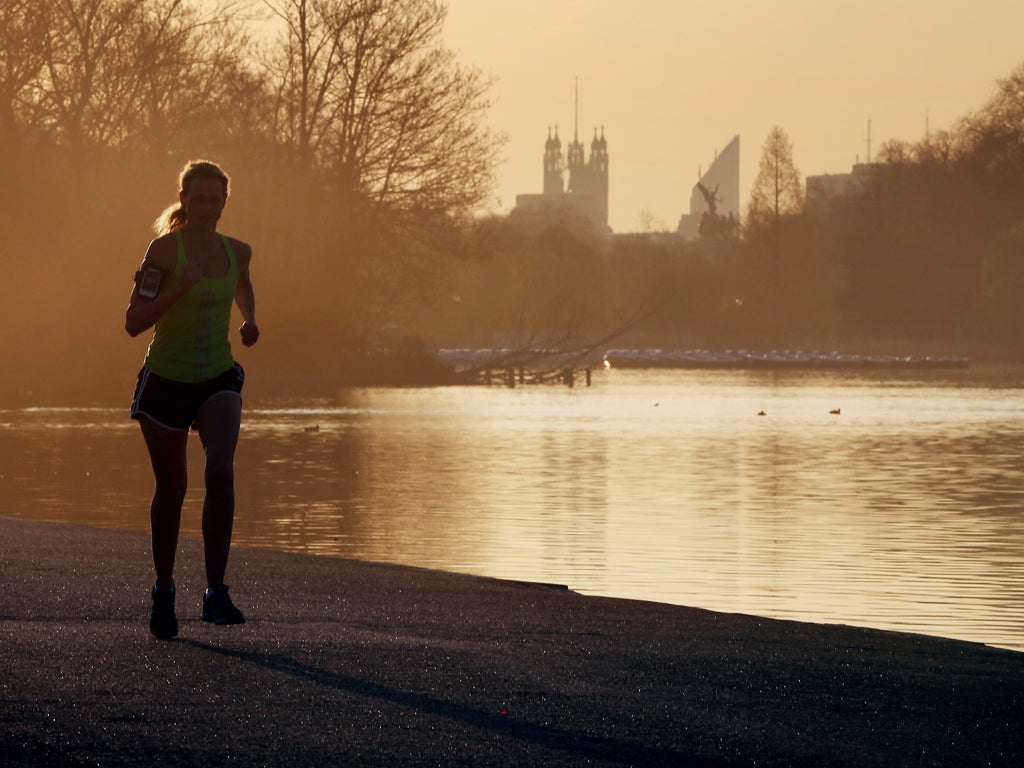It’s not the doctor's fault you aren't getting enough exercise
You surely don’t have to be one of those smug types like me who runs 5km before breakfast to know that exercise is good for you

Exercise is good for you. In other breaking news, water is wet, fire is hot and Brad Pitt is a handsome man. In fairness, it’s not actually the health benefits of physical activity which has made the news this time (though variations on this story often do), it’s what some see as the stubborn refusal of GPs to acknowledge and adequately trumpet these benefits.
The doctors’ union, the British Medical Association (BMA), has boasted of its success in renegotiating a contract clause which formerly required doctors to ask after patients’ exercise habits. “No more General Practice Physical Activity Questionnaire asking ill patients how many hours they cook or garden,” it wrote in an email to members. “GPs can be clinicians diagnosing depression rather than ticking the box for a bio-social assessment.”
That’s a good thing, right? Not according to a spokesman for Macmillian Cancer Support who expressed concern that abolishing the GPPAQ “could send the message that encouraging physical activity is not important when it is”. Sports and exercise specialist Dr Richard Weiler blamed the move on “fuddy-duddy doctors” over-reliant on prescribing drugs, and Dr William Bird, the founder of Natural England’s “Walking your Way to Health” scheme, saw it as more evidence that the BMA “haven’t grasped the one thing that could have a huge impact on outcomes”.
This attitude of bafflement is typical of the exercise evangelist. I know because I am one – I ran 5km before breakfast this morning and I feel compelled to tell you how wonderful I feel. Exercise can prevent cancer, cure depression and treat dozens of other conditions, but the greatest benefit of all, the one your GP won’t tell you about, is the licence it gives you to feel morally superior to people who don’t exercise and then rub this in their faces, under the guise of genuine concern.
Is the fact that an estimated 80 per cent of people still fail to take the recommended 150 minutes a week exercise evidence that my fellow evangelists and I haven’t been quite smug enough? Or could it be that hectoring grown adults about bad lifestyle choices isn’t in fact the best approach to this problem?
If reforming a bad habit was as simple as discovering the error, cigarette smoking would have ceased completely back in 1929 when it was first linked to cancer; pork pies would be a relic of a less civilised time only found in The Museum of Food History; and the medical profession would not be the notorious haven for souses that it is. According to one recent survey, one in six doctors will become addicts at some point in their career. Surely they, of all people should know better.
In fact, the human brain is wired to save energy by forming habits. It is far easier to do again what we have done before, than it is to do something better. That’s one reason why survey after survey shows that people lie to doctors when asked about their drinking and exercise habits. It’s just easier than admitting that despite all the advice to the contrary, you still haven’t changed your ways. Any public health initiative which doesn’t recognise these basic truths of human behaviour is doomed to fail – and waste a lot of people’s time in the interim.
Like individuals, large organisations also form bad habits, and one of the most common of these is the tendency to prioritise the appearance of getting work done over actual getting any work done. The management culture of self-assessment forms, “key performance indicators”, and box-ticking, of which GPPAQ was a part (the inscrutable acronym is always a dead giveaway), is intended to ensure that workers do what they’re supposed to.
Instead, the time taken up satisfying this extra bureaucratic requirement is time taken away from the core business of treating patients. Set in this context, ditching the GPPAQ is a rare and laudable example of a bad habit successfully broken. Now doctors can get back to doctoring and the rest of us can take on an appropriate share of responsibility for coach potato culture.
If you don’t get enough exercise it might be because you’re in one of the sedentary jobs which employ a greater proportion of the workforce than ever, or because PE created a permanent association in your mind between exercise and misery. Perhaps you carry the recently discovered gene for inactivity. Or perhaps you’re just a lazy slob. It might be for almost any reason, in fact, except one; It definitely won’t be because you’ve never heard the news that exercise is good for your health.

Join our commenting forum
Join thought-provoking conversations, follow other Independent readers and see their replies